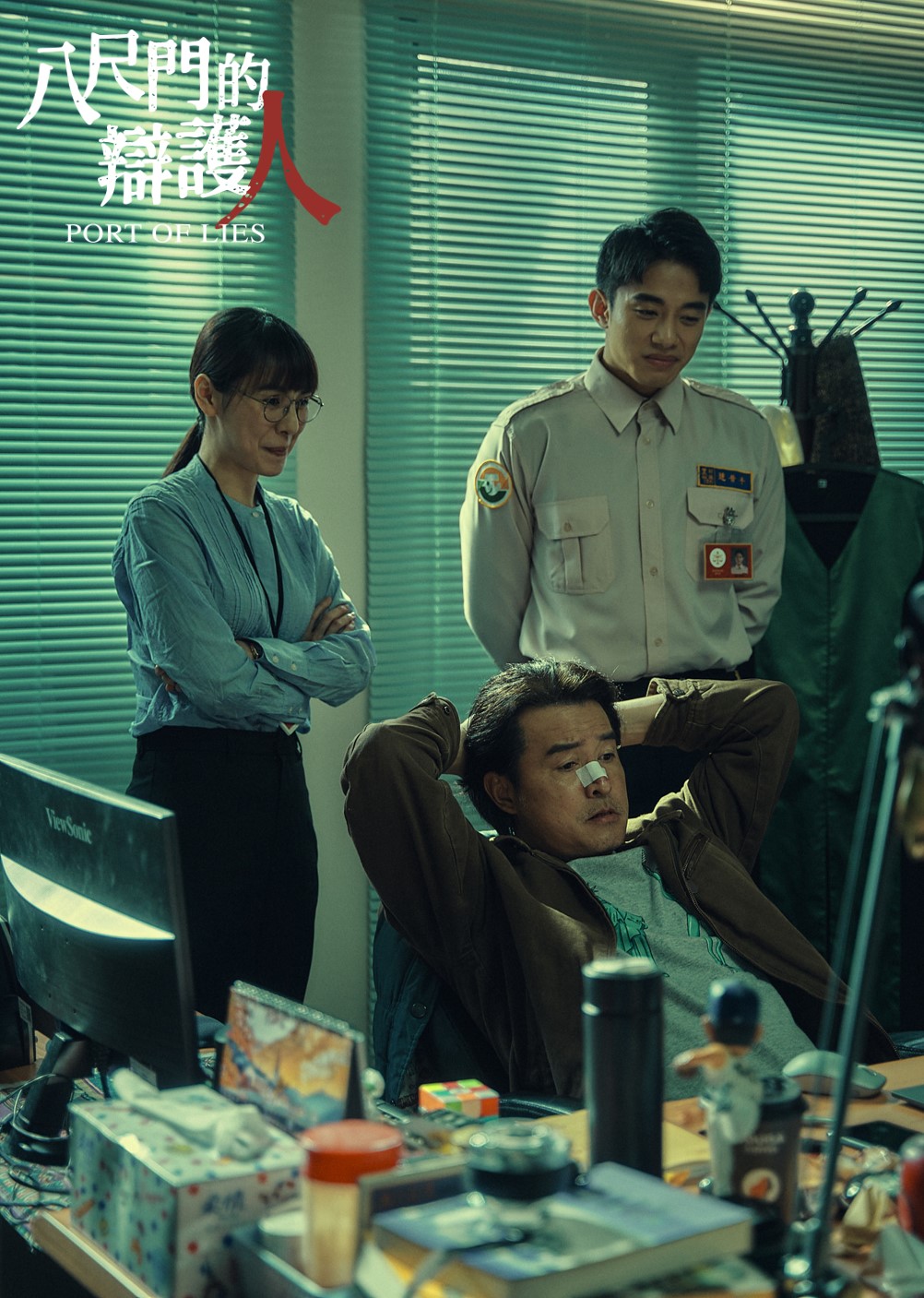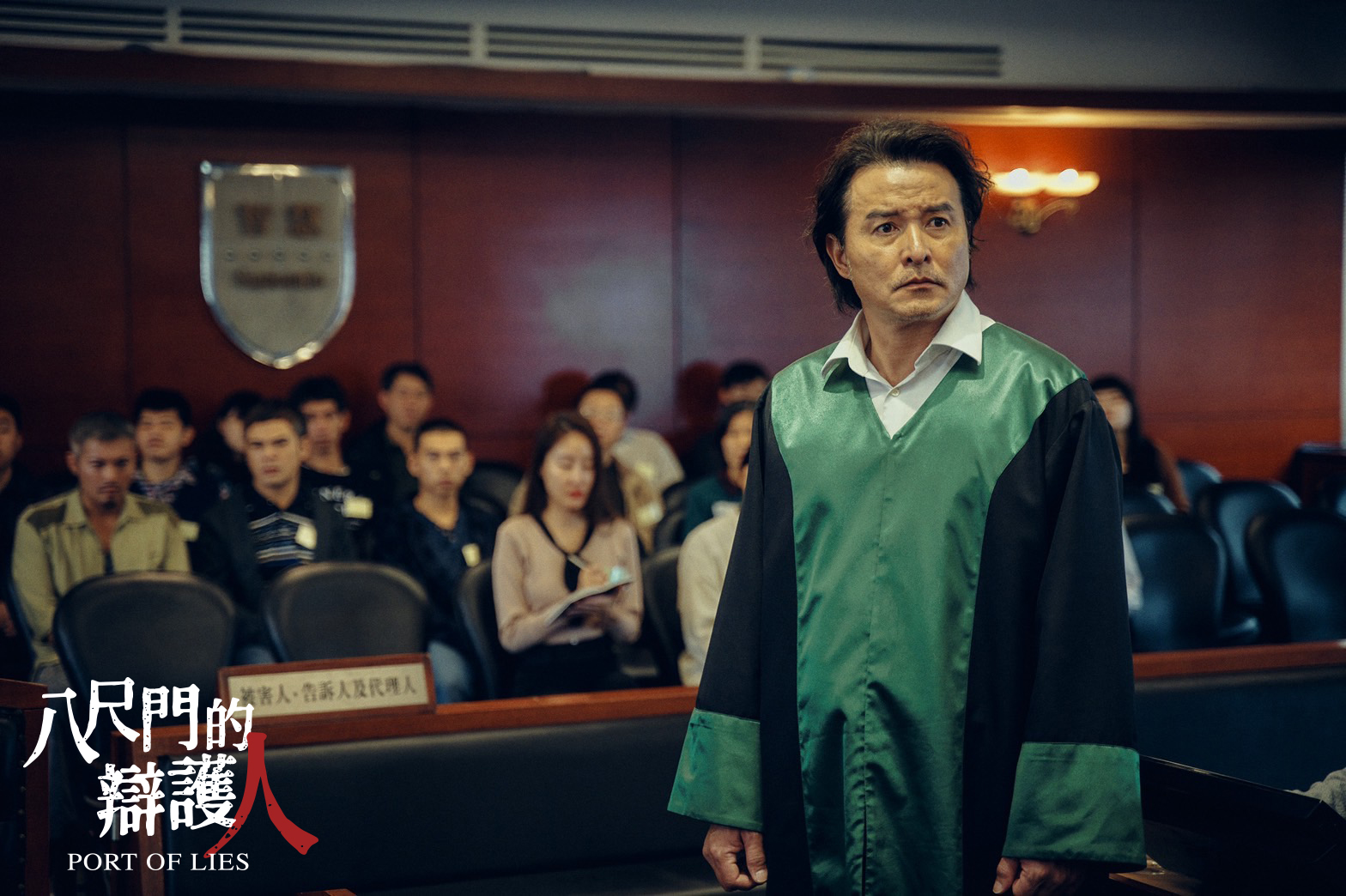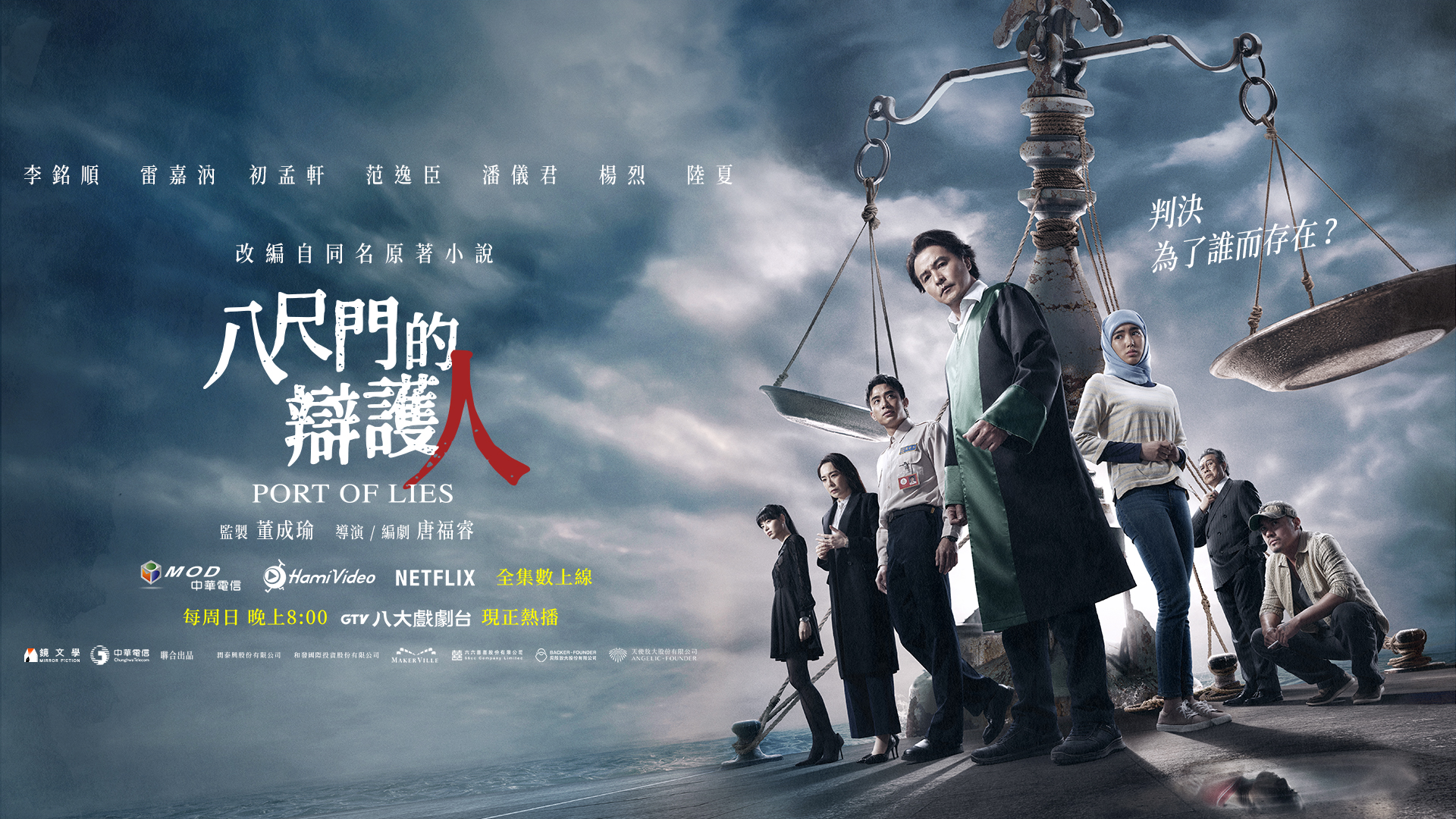by Brian Hioe
語言:
English
Photo Credit: 八尺門的辯護人/Facebook
THOUGH PROBLEMATIC in some regards, Port of Lies (八尺門的辯護人) is an attempt to grapple with some of the pressing racial issues of Taiwanese society.
Port of Lies centers around Tong Bao-ju, an Indigenous Amis public defender working in Keelung. He is cynically indifferent to his job, in carrying out the bare minimum required, and he is looked at mostly with disdain by other attorneys. Likewise, he is alienated from his family members and relatives.
But Bao-ju’s life takes a turn after he is drawn into a case involving the apparent murder of an Indigenous family by a young Indonesian migrant fisherman, Supriyanto. Though initially reluctant, he is pushed into investigating the case by his new assistant, fresh-faced and idealistic Lian Jin-ping, an elite graduate of National Taiwan University and the son of a justice on the Council of Grand Justices.

Photo credit: 八尺門的辯護人/Facebook
As it transpires, the victims are Bao-ju’s cousin, wife, and daughter. Nevertheless, pressed on by Jin-ping, Bao-ju continues to investigate in spite of the fact that this further alienates him from his family–and the community as a whole. Proving to be more competent than his cynical demeanor would initially indicate, Bao-ju quickly unearths some irregularities about the case’s investigation, including that Supriyanto’s interpreter was hiding the details of his translation and has links to fishing companies.
Port of Lies, then, seems to be grappling with the potential of conflict between minorities in Taiwan–in this case, between Indigenous and Southeast Asian migrants. This draws from reality, in that Taiwan’s deepwater fishing fleet is largely staffed by migrant fishermen from Southeast Asia, but historically, Taiwan’s fishing industry drew from Indigenous fishermen. Although Port of Lies does not seem to draw very clear borders between deepwater and nearwater fishermen, this draws from reality, in that migrant workers from Southeast Asia now take up many hazardous occupations that Indigenous formerly worked in, such as in construction or farming.
If Port of Lies is somewhat problematic, it is in that its depiction of Indonesian migrants is always as passive victims. Supriyanto–whose name seems to derive from the Indonesian fisherman of the same name who was found dead in 2015 and was suspected to have been beaten to death by his fellow crew members–is depicted from the start as a sympathetic character. But he and Leena, a migrant caregiver that later is sought out by Bao-ju to serve as an interpreter, are only depicted as agency-less victims.
The show sometimes wears its progressive values on its sleeve, such as that Jin-ping is depicted as an opponent of capital punishment and a former volunteer of anti-death penalty advocacy organizations. Given his idealism, he clashes with the jaded Bao-ju even if, as viewers quickly learn, he was inspired to intern under him after seeing Bao-ju’s passionate defense of a client during a case.

Photo credit: 八尺門的辯護人/Facebook
Likewise, it is apparent that Port of Lies aims to tell a story that shows multiple perspectives. The victim of the murder, Bao-ju’s cousin, is quickly shown to have been violent towards the migrant workers employed on his fishing vessel. Moreover, it is shown that Han corporate interests are operating behind the scenes of the Indigenous fishing community.
It is Christopher Lee’s commanding performance as Bao-ju that really brings Port of Lies to life, however. Despite being obnoxious and initially unsympathetic, it is self-evident to the audience that Bao-ju is a more complex character, with inner depth behind his gruff, jaded appearance.
If imperfect, it is because the pacing has issues, and due to the lack of transitions. The plot proceeds from one scene to the next somewhat mechanically. Nevertheless, from just two episodes, it is clear that Port of Lies has a story to tell, one that will be worth following.



